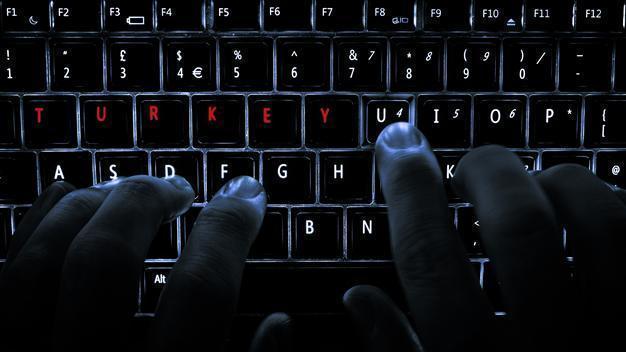Turkey has blocked a number of Kurdish and left-wing news websites while many users also experienced difficulty accessing Twitter and Facebook for an unspecified reason on July 25 as Turkish fighter jets continued to bomb the outlawed Kurdistan Workers’ Party (PKK) in northern Iraq.
The decision imposed early July 25 by Turkey’s Telecommunications Directorate (TİB), a government-controlled Internet watchdog, targeted news websites based not only in Turkey, but also in northern Iraq.
The blocked websites include Rudaw, BasNews, DİHA, ANHA, daily Özgür Gündem, Yüksekova Haber, Sendika.Org and RojNews. When trying to access one of the websites, a user from Turkey can only see a message that the TİB blocked it due to “administrative measures.”
The censorship was decried by the sites. “The censorship against the free press is an attack against the people’s right to news by a fascist government that has stooped to launching a war and exploding bombs, all with the goal of staying in power. It is not simply a question of obstructing access to a few oppositional news sites; it is an attempt to obstruct access to democracy,” Sendika.Org said in a statement July 25.
“We are not the dregs that work according to the dollar. We take orders from our conscience, not the telephone,” daily Özgür Gündem said in a statement on July 26, in reference then-PM Recep Tayyip Erdoğan’s interference in news channels’ reports. “We will not abandon our promises, and we will not sell our pens. Don’t even dare trying to frighten us.”
Many internet users have been rushing to download VPNs to circumvent the government’s web restrictions.
On the other hand, Turkish officials speaking to daily Hürriyet denied that Twitter and Facebook were also blocked by authorities late July 24. The reason for the reduced service for both platforms in Turkey remained unclear on July 25.
Mehmet Ali Köksal, an attorney specializing in IT law, told Hürriyet that Turkish authorities could be controlling Twitter and Facebook traffic to spy on PKK communications, leading to the slowing down in both services.
Thanks to a law prepared by the ruling Justice and Development (AKP) party and approved in parliament on March 12, Turkish cabinet ministers can remove or block an online publication for “defending the right to live, securing property, ensuring national security and public order, preventing crime or protecting public health.”
The TİB can enforce requests by the ministry to impose blanket bans within just four hours. The decision should then be approved by the judge of a criminal court of peace within 24 hours. The judge would have to issue a ruling in 48 hours. If no verdict is issued, the ban will automatically be revoked.
On July 22, a Turkish court blocked Twitter for more than two hours after ordering a publication ban on photos and videos of the deadly Islamic State of Iraq and the Levant (ISIL) bombing in southeastern Turkey that killed 31 members of a socialist youth group that were bringing to toys to children in Kobane.
Currently, more than 81,000 websites are blocked in Turkey, according to monitoring website Engelli Web.
